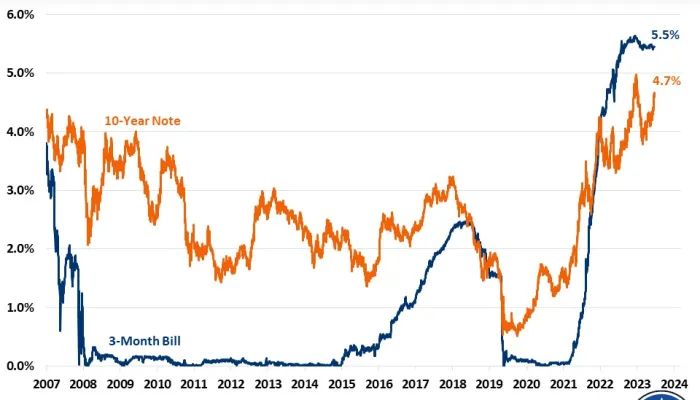David Perdue & Maya MacGuineas: National debt solutions noticeably absent from debates
Senator David Perdue, the junior senator from Georgia, and Maya MacGuineas, president of the Committee for a Responsible Federal Budget, wrote a guest post for The Hill's Congress Blog. It is reposted here.
As recently as 2007, our gross federal debt was 63 percent of the economy but has risen to over 100 percent this year and is projected to continue to exceed the size of our entire economy for some time if we don’t act. By the end of President Obama’s tenure in office, the United States will have added over $9 trillion to the national debt. It will require leadership to change course, and the current presidential campaign is an ideal forum to discuss this dangerous trend and to propose serious solutions.
Unfortunately, the discussion so far has not focused on our national debt. In fact, it has barely been mentioned. With over 70 questions in over five hours of debate in the first two Republican presidential debates – not one single question has been about fixing the debt.
We need a substantive national conversation about our red ink, and the next presidential debate on October 28 among the Republican presidential contenders is a prime opportunity to address this issue. After all, the winning candidate won’t be able to escape the debt. The next president will inherit a gross federal debt of about $19 trillion.
We are well past the point of being able to ignore this immense problem. If interest rates were to rise only to their 30-year average of 5.5 percent, we would be paying almost a trillion dollars in interest alone by the end of the budget window. That's almost twice what we currently spend defending our country, and it's just not workable.
The consequences of such high debt aren’t abstract; they are real and will affect the pocketbooks of working individuals and middle-class families. Rising debt will slow economic growth and could reduce projected annual income by up to $6,000 per person by 2040. Interest rates will rise on everything from credit cards to mortgage loans and car payments.
Decades of fiscal mismanagement from both political parties have led to where we are today. We need real leadership – not just from elected officials, but also from those seeking office. They need to tell voters the hard truth: Washington has burdened the next generation with empty political promises, and this debt crisis threatens our national security as well as the future of our children and their children.
In this election cycle, most of the presidential candidates have not shown the boldness to address the debt in a meaningful way. There are some who subscribe to the false belief that our debt problems are over because deficits – the difference between federal spending and revenue in a given year – have been falling in recent years. But as the Committee for a Responsible Federal Budget points out, trillion-dollar deficits are projected to return in the next 10 years largely due to an aging population, increased healthcare costs and rising interest costs.
Washington can ignore the problem and point fingers, or it can get serious about adopting comprehensive reforms that will put the country on a sustainable fiscal trajectory.
Our fiscal challenges will require a long-term solution. We have significant opportunities to responsibly cut government spending, but instead of the blunt sequester, we should eliminate or reform programs that are outdated and don't work. As we have seen, hacking away mindlessly at all discretionary spending is not the right approach.
With an aging population, we need to save and restructure our entitlement programs so we can guarantee these programs will exist for future generations. The Social Security disability trust fund will run out of money next year; and the retirement portion will be depleted in the next 20 years.
In addition to cutting expenses and saving Social Security and Medicare, our next president needs to put the right policies in place so we can grow our economy. Candidates should put forward proposals to reform our outdated tax code and modernize our energy and regulatory policies in order to lift wages and create jobs.
Finally, we need to enact common-sense policies that incentivize businesses to create jobs and individuals to invest in the economy. This requires lawmakers who are willing to make tough choices and compromise to reach the goal. We need a "man-on-the-moon" national effort to solve this long-term debt crisis.
Getting our fiscal house in order should be a top priority for all the presidential candidates and discussing how best to do this should be front and center in each debate.
The Republican presidential candidates have a week before the next debate in Colorado. We cannot afford for the national debt to be absent again. Candidates shouldn’t act surprised if the moderator’s first question is: What will you do about our national debt?
And Americans expect – and need – our next president to hit this question out of the park.
"My Views" are works published by members of the Committee for a Responsible Federal Budget, but they do not necessarily reflect the views of all members of the committee.


